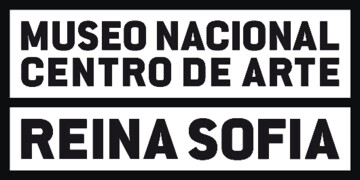Today’s world of culture is shaped, on the one hand, by prominent figures in the culture and communications industry and, on the other, by the diffuse range of culture producers whose actions are governed by the subordination of their creative singularity. This subordination is manifested in artists having to sell their creative capacity or in their being expropriated of it. In addition, we are in the midst of a systemic crisis to which the museum is not immune, including the ecological crisis. If the economic paradigm based on speculation and easy money has proven unsustainable, it should also be clear that the primacy of the building and of art as spectacle over the museum’s artistic programme has ceased to be valid. There is therefore a pressing need to invent other models. Museo Reina Sofía is working to develop various approaches aimed precisely at transforming the museum from a public institution into one that belongs to the common sphere:
The rehanging of the museum’s collection does not tell a compact and exclusive story, offering neither an exhaustive nor categorical experience. Its aim is speak of the present time through a critical study of the common past. Therefore, eight thematic episodes are put forward and open towards flexible temporalities and interdisciplinary focal points that can be interlinked to create new narrative threads. This condition creates an openness to the other and to the presence of other cultures and ways of doing things in their own praxis, without fear of a hypothetical loss of identity.
The creation of an archive of communality. A kind of archive of archives. The Museo Reina Sofía is aware that “the archive” has become a recurring place in contemporary artistic practice, a rhetorical figure that serves to bring together the most dissimilar of actions, often characterised by the mere compilation of an irregular documentation. Following Derrida the Museo Reina Sofía asks if the archive does not perhaps bring with it a certain danger of saturation of memory, and even of the denial of the narrative. However, for the archive of communality, the narrative or narratives that its members create are as important as the document itself.
The Museo Reina Sofía works to develop dialogues and collaborations sustained over time with national and international collectives, social movements and universities, both in the artistic field and in activism and thought. In doing so, the museum seeks, on the one hand, to make its boundaries increasingly porous, opening up spaces for contact, generating common projects and summoning unexpected audiences; and, on the other, to create a network of relationships through which to generate ideas and critical actions, as well as new forms of institutionality.



